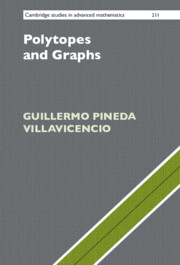8 - Faces
Published online by Cambridge University Press: 14 March 2024
Summary
We investigate numbers of faces of polytopes. We begin with the face numbers of 3-polytopes. The characterisation of $f$-vectors of $d$-polytopes ($d\ge 4$) is beyond our current means.In view of this, researchers have considered characterisations of the "projections" of the $f$-vectors, namely the proper subsequences of the $f$-vector; we review the existing results. Section 8.2 gives a proof of a theorem of Xue (2021) on the minimum number of faces of $d$-polytopes with at most $2d$ vertices, answering a conjecture of Grunbaum (2003). This is followed by results on the minimum number of faces of $d$-polytopes with more than $2d$ vertices. We then discuss the lower and upper bound theorems for simplicial polytopes, due to Barnette (1973) and McMullen (1970), respectively, and their extensions such as the $g$-conjecture of McMullen (1971), now the $g$-theorem. The proof of the lower bound theorem connects rigidity theory and the combinatorics polytopes. The chapter ends with a discussion of the flag vector of a polytope. This includes a result of Bayer and Billera (1985) on linear equations for flag vectors like the Dehn--Sommerville’s equations for simplicial polytopes.
Keywords
- Type
- Chapter
- Information
- Polytopes and Graphs , pp. 340 - 393Publisher: Cambridge University PressPrint publication year: 2024

